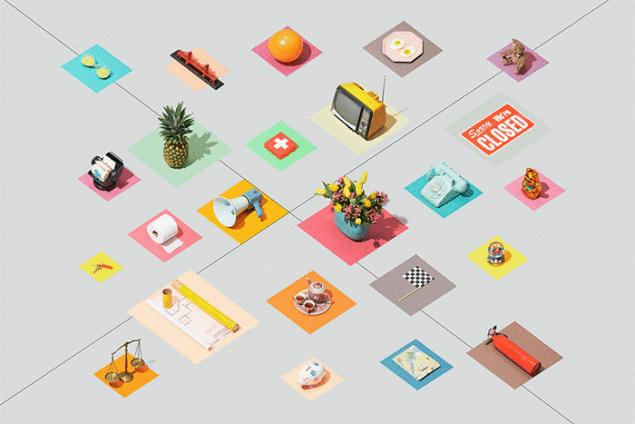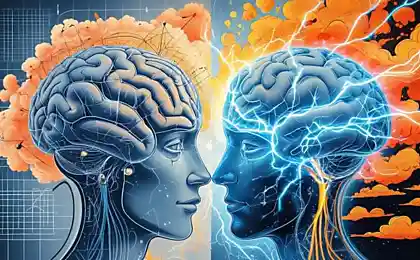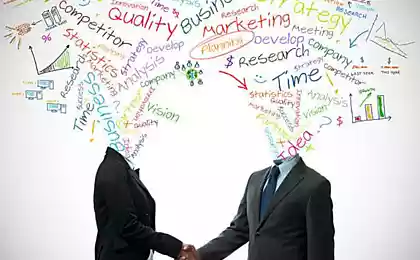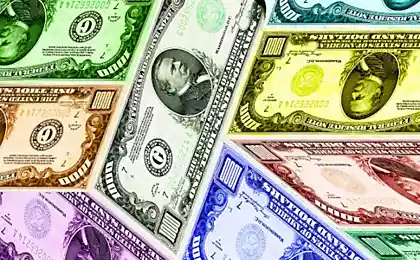583
With the money people are impatient: neuroeconomist Samuel McClure about the physiology of decision-making

© Andrew B. Myers
Samuel McClure, one of the leading experts in the field of neuroeconomics. This interdisciplinary field of science studies the decision-making process, mechanisms of control, self-control and risk is so important for entrepreneurs and investors.
— Currently, there are two decision-making mechanism. How do they differ?
The first, and it seems very clear, is the ability to automatically generate expected conduct. In such cases, we may not realize the origin of the decision: it is simply occurring in our head. Maybe people learn this immediately, and over time this behaviour becomes habitual. It can largely be called emotional process, slowly acquired automatic skill. The other mechanism is associated with our ability to think about something abstract, to evaluate it and use in the management of their behavior. It is quite a tedious process, for the brain is as complex carbohydrates. It is not very efficient, but very flexible, if we are talking about our desire to control its decision.
If you want to understand how the economy works, you need to understand how it works, moshato classic for neuroeconomics perspective on decision-making process. It is believed that almost all of our behaviour strategies — automatic. In order to make a decision based on conscious, abstract concepts, we have to make the effort. This can lead to the fact that two different mechanisms will have different answers: the first says that you need to immediately eat a candy bar, and the second reminds you that you decided to live a healthy lifestyle.
— What structures in the brain that provide these mechanisms?
Dopamine, or the limbic system associated with the basic mechanisms of motivation and reward. Dopamine is produced by the action of external factors, including triggers automatic decision-making process. Prefrontal cortex, in contrast, is able to create abstract goals and behavior based on them. BIOS is the brain that allows us to perceive the world and interact with it. The prefrontal cortex, it seems, is limited from the point of view of their possibilities and fields of action, it is slower than the limbic system, and this work is, in a sense, brain exhausting.
Neuroeconomics studies the structure and physiology of the brain, trying to combine the knowledge of these two mechanisms. It seeks to answer the question of, can we use the techniques of cognitive neuroscience in order to effectively make decisions and figure out how two fundamental systems interact. To understand how you can make different choices in similar situations, or, conversely, behave the same in different situations, and what shapes these decisions.
— How does temporal discounting, which you said in his lecture in Moscow?
This process involved two systems that I mentioned. In this case, there is a classic conflict: when the future in the abstract, you may also have behavioral goals, such as maintaining a healthy diet. But as soon as there is an instant temptation — say you see a dessert or a candy bar — comes in an automatic system. She begins to dominate the action of the cortex, telling us: "Come, eat!" The effect of her work is very hard to put down.
— What methods you used to study this process?
We usually study how people make choices associated with money. To now 600 rubles or 1,000 rubles for the next week? As a rule, people are impatient and will settle for smaller amounts, if you can get them immediately. But here, everything is very individual: someone who is more patient, and choices made by a person directly connected with the activity of prefrontal cortex or the limbic system.
— The limbic system is very ancient, its task is to ensure the survival of the species. Is it possible to overcome the effects of her work, despite the fact that it is due to evolution?
Sometimes what brings us satisfaction, it is necessary for survival. But the large prefrontal cortex is one of the characteristics of our species, and its ability to handle abstract concepts and goals are unique. We can use these areas in order to overcome the effects of the automatic operation of the limbic system and motivate yourself for the different behaviors. As in "the hunger games": if I want to prove that my religion is correct, I'm able to suppress their desire to eat. Surprisingly, each person may behave according to abstract ideals, and not, as required by the immediate system of rewards.
— What is the basis of motivation?
Motivation depends on the bark, because the bark provides us a purpose. But what makes her choose one goal among many others? It is a question of activity of the dopamine reward system within the limbic system, or rather of the nucleus accumbens (aka pleasure center deep in the brain. — Approx. ed.). At the same time, we can use the prefrontal cortex to reflect on possible scenarios of development of events and illustrate them with examples. So you form an expectation of what reward you will receive, and thereby create purpose in the future. So as the process of motivation is based on the limbic system and in mesocortical path (one of the dopamine nerve pathways. — Approx. ed.). Imagining the possible scenario, you use this way to determine the size of the "dividends" you receive in the future from an emotional point of view.

— How the brain finds and selects an abstract goal?
Apparently he appreciates how good it is in terms of remuneration. In the laboratory, we usually just tell the participants: "Do it!" and see how activated the prefrontal cortex changes the activity of the mesocortical path and then and behavior. But how do people decide what to choose, we are not yet known. We know that the brain calculations about the future based on the assessment of the compensation. But we don't know whether to call this a method of forming purpose only.
The better the prefrontal cortex, the easier it is to make the right decisions— the Brain takes into account the mistakes and failures? Can the pain of defeat to affect the decision-making strategy?
Yes, regret plays a big role here. We tend to avoid what hurts us, but if the person retains its focus on the negative scenarios, he overvalues them and becomes less prone to selection of the associated path.
— Should we listen to your fear when it comes to business?
In the classical sense of emotion is something irrational, and it is necessary constantly to analyze everything, like Spock from "star trek". But in the neurobiology of this opinion long ago, no one follows. Emotions have great value, they serve as signals about how good or bad the world around us. It is difficult to make decisions if you rely solely on reason or solely on feelings, because the decision-making process, in principle, is extremely complex. A balance must be found between different elements, and that it is built into the work of the brain. Need a basic motivational incentive, the review of how good it was when you made the same action in the past, assessment of possible consequences. The only way the brain can create a behavior.
— Control and self-control is the work of Cora?
Theory says Yes. Pushing the man to the temptation, you can see how the prefrontal cortex does exactly what you was expected of it: suppresses the automatic stimulus emanating from the limbic system. But, if you interfere in her work with transcranial magnetic stimulation, the ability to self-control will be reduced.
— Are there techniques that help to develop the prefrontal cortex to the ability to make informed decisions increased?
This is the million dollar question. We have a few guesses, but they all boil down to the fact that the amount received by a person of education should be high. The more you learn, the stronger the development of your prefrontal cortex. There are cognitive training, riddles, tasks and puzzles that help strengthen this area of the brain. The better it works, the easier you will make the right decisions. You can practice mindful thinking and use other methods to brain was "in good shape".
Initially, self-control is difficult, but if with practice it becomes a habit, it becomes easier. Here, just as in sports: a lot of people train every day, and it's just a part of their lives. In their case, exercise is no need of self-control. It is important to remember that first requires a lot of effort, eventually becomes a daily matter, becomes an automatic behavior.
Maybe we should introduce a cognitive training programme for economic departments?
And so part of the education system: the school allows us to acquire these skills and learn to analyze. But knowing how the brain works, of course, you can create a special program of "workouts" that will improve a person's ability in the field of decision-making. In the financial sector, people sometimes lose the balance between emotion and reason is necessary for the successful strategy. Investors do not always have time to think about every decision, but if so, that's good.
Economics is not just mathematics: it is impossible to study the activities of each company in the market. Need to choose an area that seems interesting to you, and focus on it. When you evaluate the company, it is useful to look at the details: income, debts, prospects, and industry trends. You need to develop the literacy and arithmetic to keep track of emotions, if they occur in areas where automated decisions will not bring results, for example, in the financial sector.
— What makes us risk-averse?
In neurobiology many are interested in this. If you are working with risk in income and focus on possible achievements, you activate automatic emotional decision-making system. The more she works, the higher the probability that you will choose associated with income risk. Otherwise, this works too: if you estimate potential loss, the focus of attention are the negative emotions, activity increases in another part of the limbic system, and a desire not to work with this particular situation. In this case, you can rely on the abilities of your prefrontal cortex, to calculate and assess your gains and losses. But, despite the fact that the mechanism of risk is based on the same system as the decision-making mechanism, there are more nuances, and processes are more complicated.
— Should we reconsider their views on the economy with all these discoveries?
Economists have always understood that the behavior is the result of brain activity. So, if you want to understand how the economy works, ideally, you need to understand how the brain works. He had long been inaccessible to research. This is an extremely complex organ, and we actually know little about how it works. But neuroscience is evolving and is becoming increasingly important for the economy. How to operate the limbic system and prefrontal cortex as they interact with each other? How do we make risky decisions or decisions based on self-control? All this is interesting to economists. I am sure that in the near future in the field of Economics there theories based on the study of human behavior. It is a question of a couple of decades. published
Source: theoryandpractice.ru























